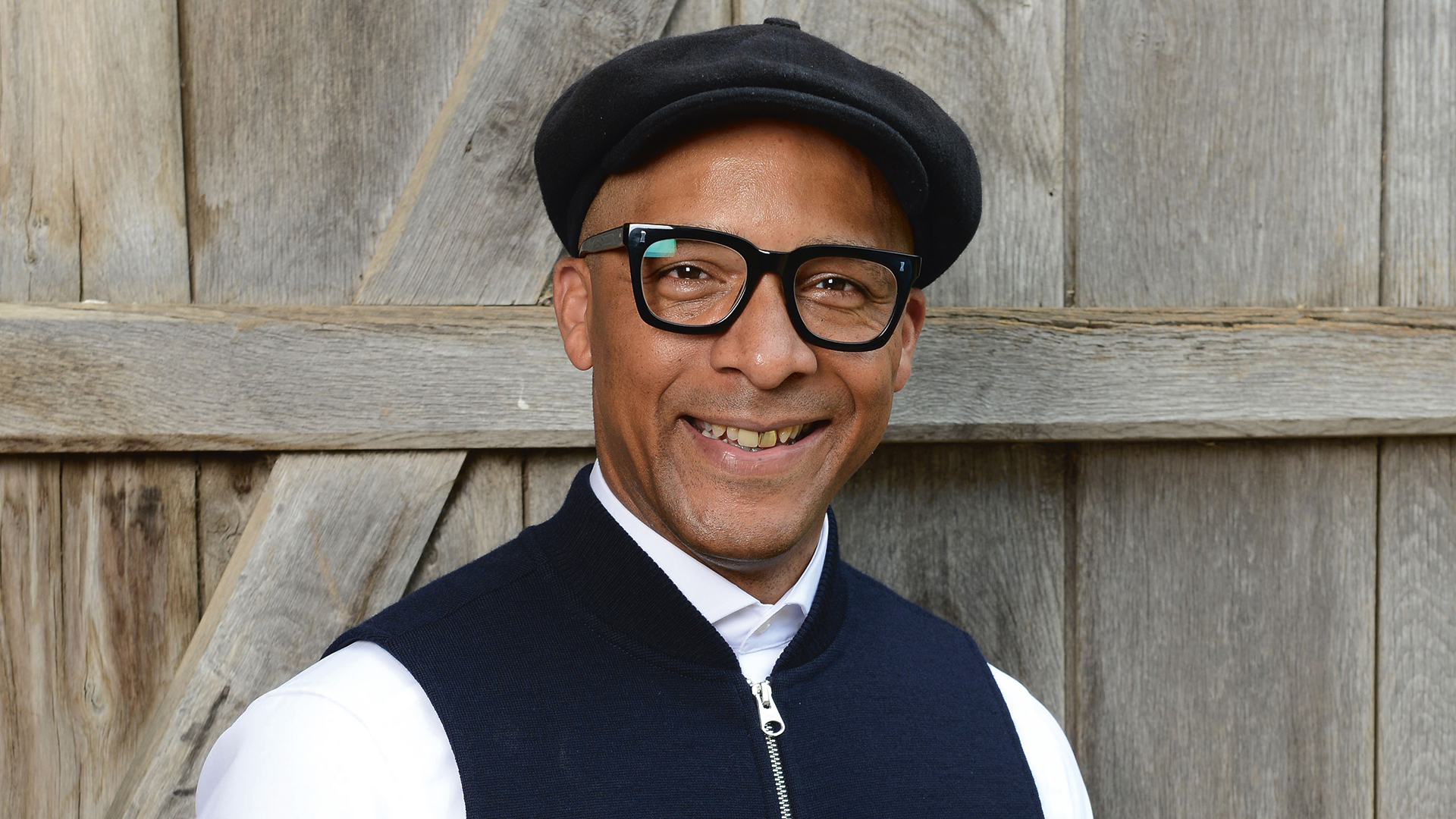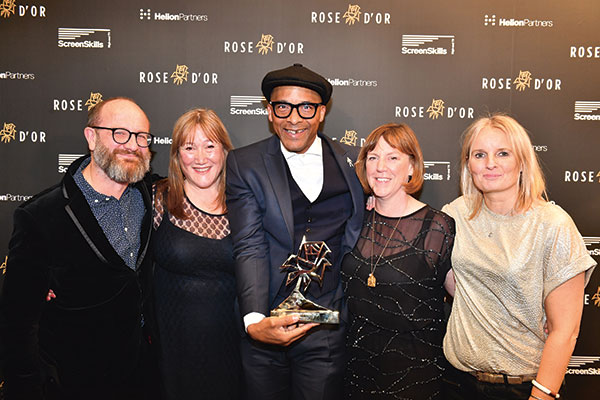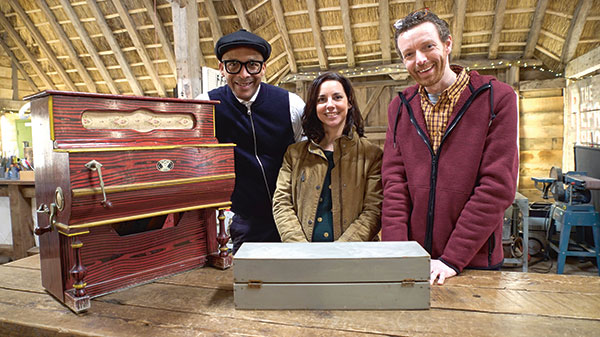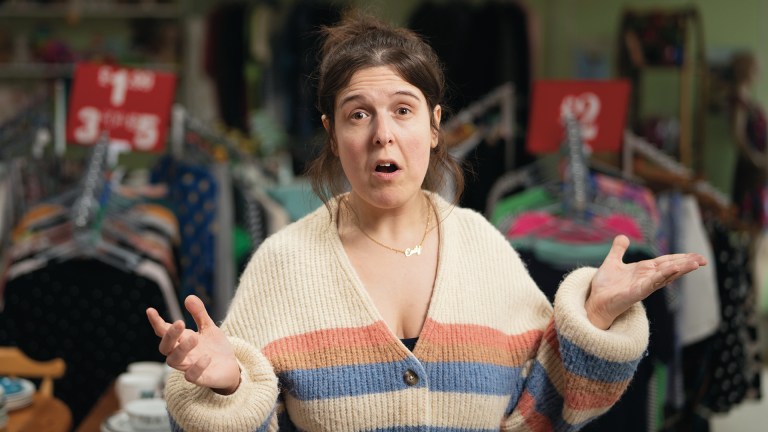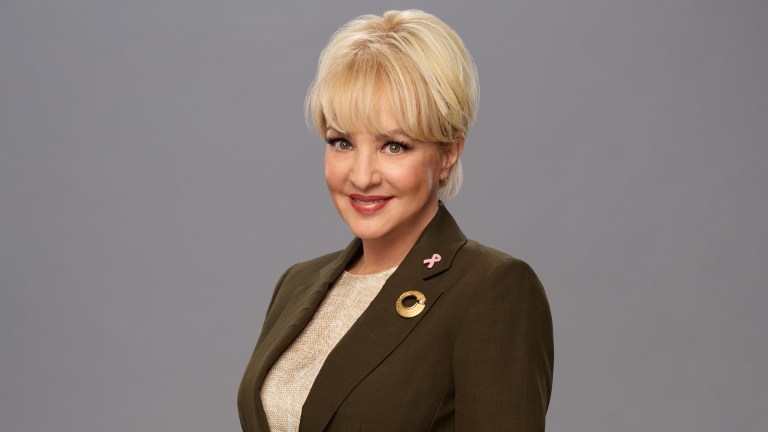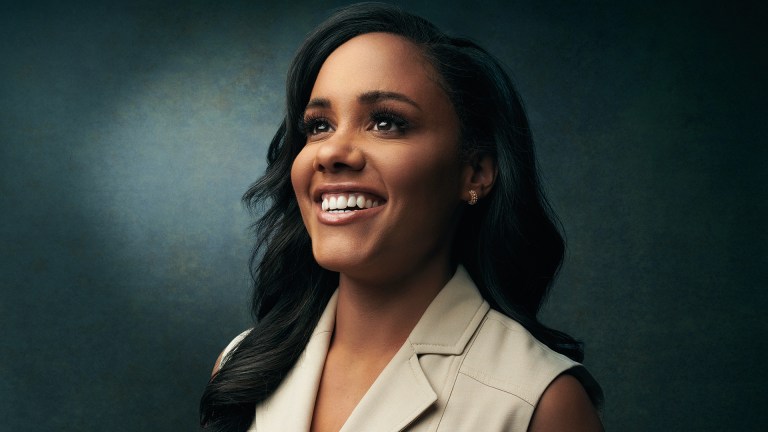Television presenter Jay Blades hasn’t had an easy upbringing. The 51-year-old furniture restorer, who is best known for appearing on The Repair Shop and Money for Nothing, has had to struggle through poverty, racism and a lack of education to get to where he is.
But he hasn’t let his humble background hold him back. Here, in The Big Issue’s Letter To My Younger Self, he talks about The Repair Shop’s role in repairing communities, working in factories as a young man and how a ‘magical’ memory came flooding back.
Lockdowns have taken income away from hundreds of Big Issue sellers. Support The Big Issue and our vendors by signing up for a subscription.
School for me was quite tough. I suffered racism and a lot of fighting and I got caned a lot. I didn’t know it then but I have dyslexia and of course that didn’t help. People with dyslexia have a way of processing things. They sometimes don’t take well to authority. They’re very creative and they’re very good with emotional intelligence, they can read people very well. But I didn’t know I was dyslexic in school, I was just told I was dumb. I still remember my session with the careers teacher. Everybody went in, one after another, and they’d say, I want to be a fireman, and the teacher would say, get this qualification and get your fitness levels up, stuff like that. I sat down and my teacher said, there’s no point you sitting here Blades, because really, truly, you’re going to amount to nothing. And that was it.
I suffered a lot of racism in secondary school. I went to a school that was predominantly white, and I was one of the first wave of black kids. I got called loads of different names and I didn’t know what they meant. I grew up in Hackney, and I didn’t see racism there at all. We had black, white, Asian, everything. What we had in common was that we were poor, and that was it. So when I went to school and got these names I thought they were names of endearment. I would go back to my community and use those names and the older people said, why are you calling me that? And I said, well, that’s what they call me at school. And they said, no, no, that’s a bad name, that’s a racist name. They’re taking the piss out of you. Then one of the elders came to school, I pointed out some of the people that were calling me names, he beat them up, and then he left.
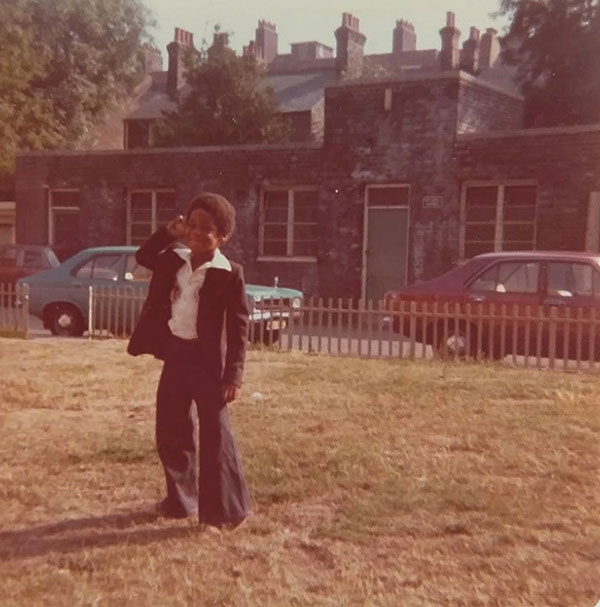
I was an upbeat kind of kid. I loved being around people who were OK with me. Even though I was caned, I was racially abused, I actually had a great time at school. I’ve got some great memories and some friends that I would not change for the world. I’ve always been upbeat. I understood that those people just didn’t like me because of the colour of my skin and there was nothing I could do about that, so there was no point getting angry. Why should I return that hate with hate? You return hate with what’s really inside you and what’s really inside you is love. You are a special person, and as soon as you start to believe that, no external force can influence it.
